Every year, more than two million people visit Beijing’s grand Summer Palace. In centuries past, Chinese emperors favored it above all other royal residences. They especially liked to be there in summertime, when they could enjoy a cool breeze in a wonderful park area, strolling around at leisure and watching the sunset while savoring a glass of wine.

A Walk Through History
The site spreads across 1.1 square miles in the northwest suburbs of Beijing, and three quarters of the space is covered with water. Today, the two principal landmarks are Longevity Hill and Kunming Lake, but this was not always the case. The palace’s history dates back almost 800 years. It was then that the first emperor of the Jin Dynasty (a.d. 265–420) moved his capital close to what is present-day Beijing and built the Gold Mountain Palace. His successors made many changes and even had engineers design channels that would bring water from nearby rivers to the palace area. They used this water to make artificial lakes that served as reservoirs. In time, much of this area became a park. Then, in 1763, Qing emperor Qianlong commissioned the building of the Temple of Gratitude and Longevity Hill to honor the 60th birthday of his mother in 1763. He named it Qinyiyuan (“Park of the Pure Ripples”) and even ordered that the roadways leading from Beijing to the Summer Palace be decorated.
Diese Geschichte stammt aus der November/December 2016-Ausgabe von Dig Into History Magazine for Kids and Teens.
Starten Sie Ihre 7-tägige kostenlose Testversion von Magzter GOLD, um auf Tausende kuratierte Premium-Storys sowie über 8.000 Zeitschriften und Zeitungen zuzugreifen.
Bereits Abonnent ? Anmelden
Diese Geschichte stammt aus der November/December 2016-Ausgabe von Dig Into History Magazine for Kids and Teens.
Starten Sie Ihre 7-tägige kostenlose Testversion von Magzter GOLD, um auf Tausende kuratierte Premium-Storys sowie über 8.000 Zeitschriften und Zeitungen zuzugreifen.
Bereits Abonnent? Anmelden
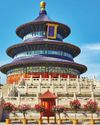
Worshiping Heaven
For almost 500 years, emperors of the Ming and Qing dynasties offered sacrifices and prayers at the Temple of Heaven in Beijing.
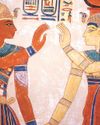
Peace Reigns
The news spread throughout Egypt—a new pharaoh, Ramses III, now sat on the throne.
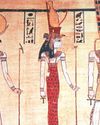
Problems To The East
Ramses III, the second king of Egypt’s 20th Dynasty, is viewed as Egypt’s last truly great pharaoh.
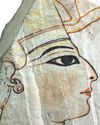
The Successors
Following the death of Ramses III, eight pharaohs, all named Ramses, ruled Egypt.
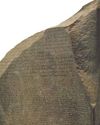
Stone Code
Hundreds of ships, led by the French general Napoleon Bonaparte, sailed from France in May 1798 on a secret mission.

Up & Away!
Eclipse observers often face unexpected difficulties, sometimes on their way to their chosen sites and sometimes at a site itself.

Edison's Eclipse Adventure
Thomas Edison (1847–1931) is the best-known inventor in American history.
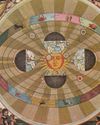
Digging Up Copernicus
The scientist “who made the Earth a planet” is how the Harvard-Smithsonian astronomer Owen Gingerich refers to Nicolaus Copernicus (1473–1543). Copernicus’ path breaking book, On the Revolutions of the Heavenly Spheres,challenged the centuries-old belief that the Earth stood stationary at the center of the cosmos.
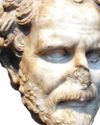
Demosthenes & Cicero
Even today, more than 2,000 years after they lived, Demosthenes and Cicero are still considered two of history’s most outstanding orators.
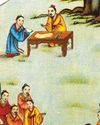
Confucius & Socrates
Some teachers are so inspirational that their influence lives on long after they die.